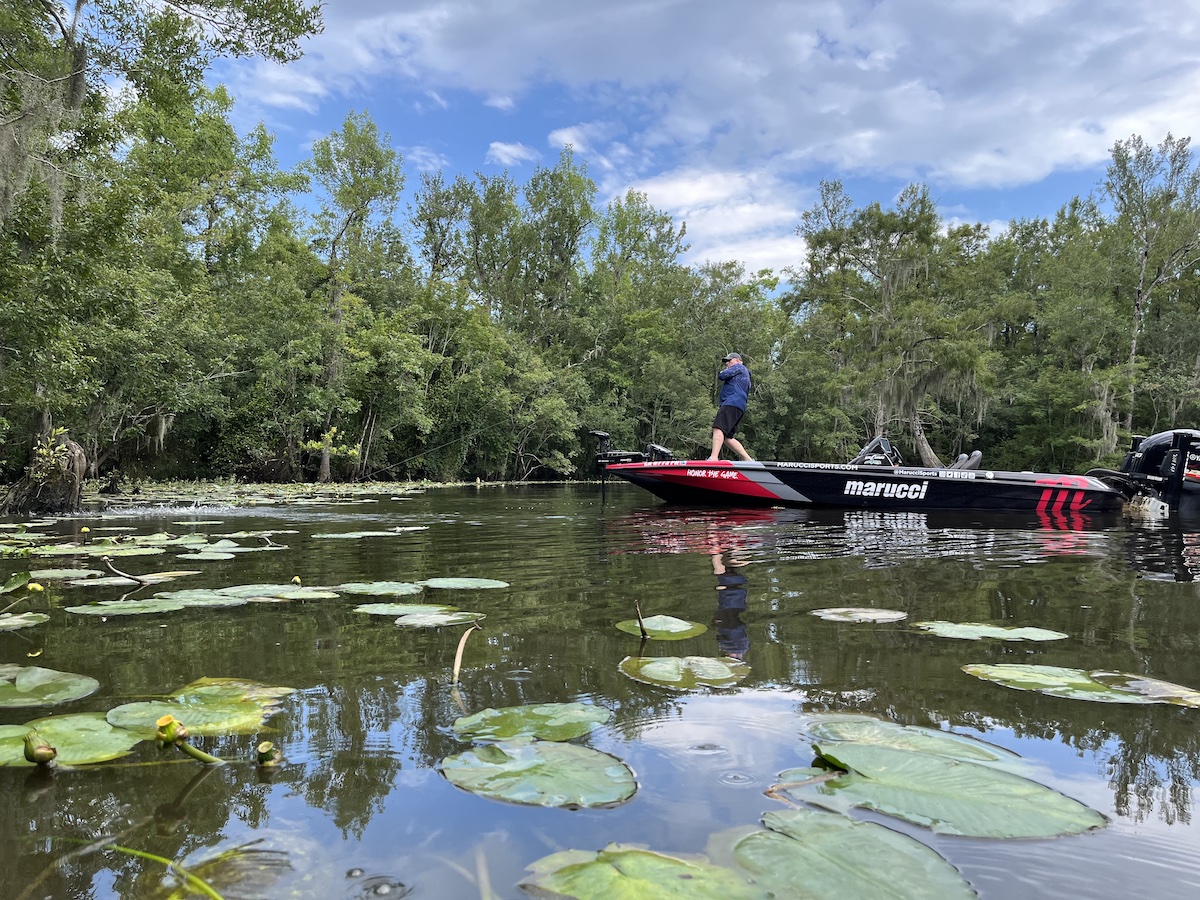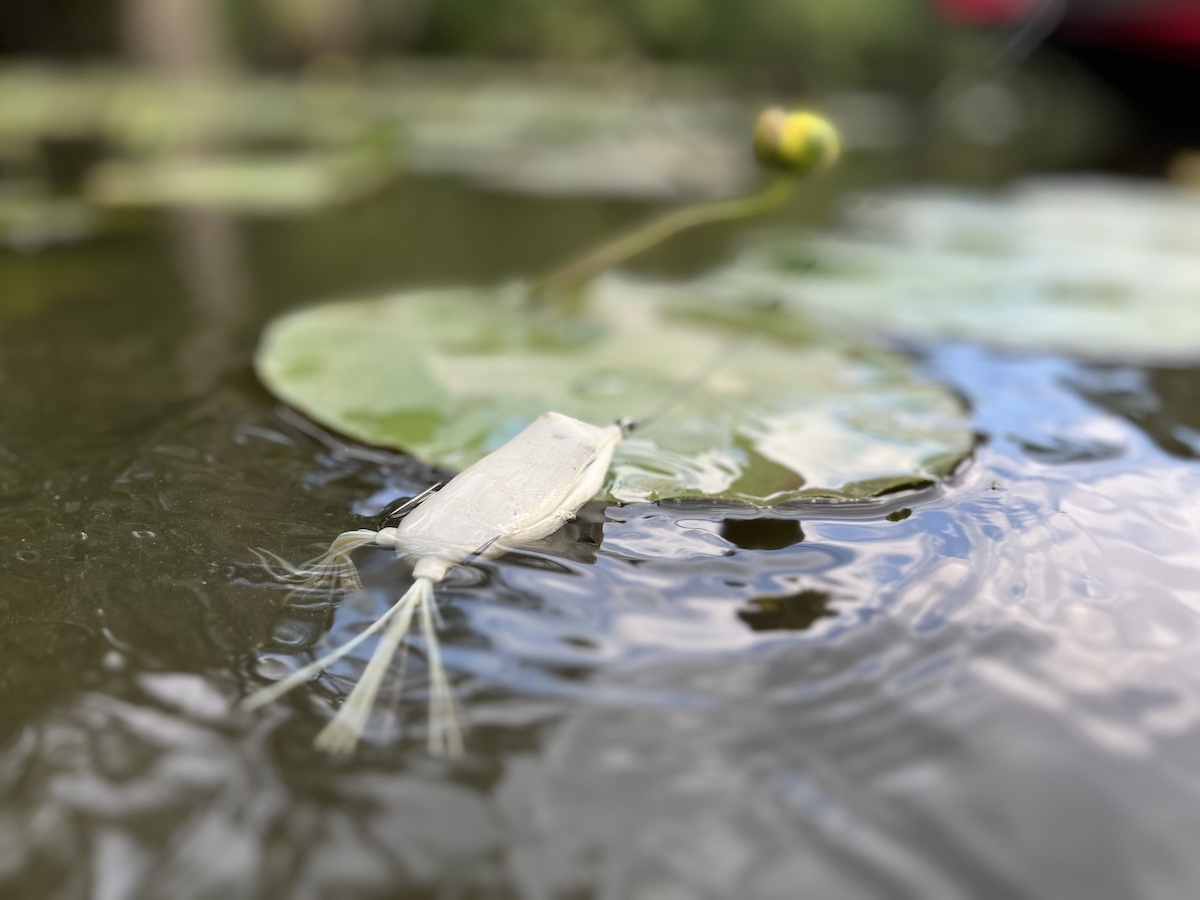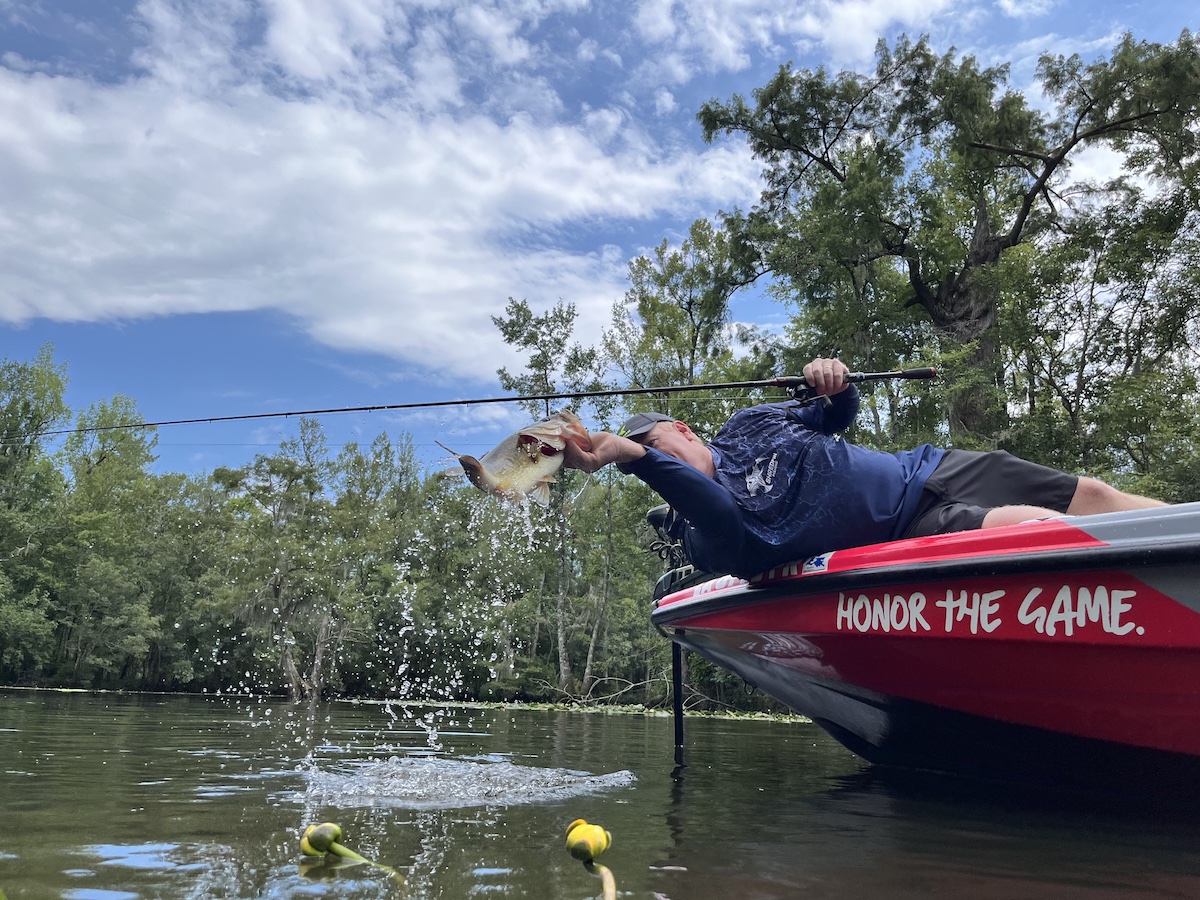Customizing Frogs for Better Presentation
Keith Lusher 08.06.24

There’s nothing like it. Fog on the water. Dead calm winds. The sun barely peeking over the horizon. You make your first cast to the shoreline with a hollow-body frog and twitch it until it falls into the water. You then notice slight movement on the water’s surface as if something is underneath. After giving the frog three pops it happens! The water explodes and you wait an extra second to set the hook. The line rips across the lily pads and the fight is on!

For most anglers, nothing beats an early morning top-water bite. For Jason Pittman of Covington, LA, frog fishing is an obsession. I made a trip with Pittman to the Abita River where I witnessed a whole new world of frog fishing.
Pittman dedicates two trays of his tackle box to frogs and has learned how to fish them over the years. Not only has he mastered the art of frog-fishing, but he’s mastered the art of customizing the plastic amphibians. “I’ve tried everything with these things over the years,” he said.
The tournament angler showed me a few tips to try when customizing a frog and said there are always ways to change the presentation, sound, and weight.

Presentation
While all frogs retrieve differently, a lot of anglers make an effort to “walk” the frog. This happens by developing a rhythm in your retreive which makes the lure turn side to side as if it were walking. Pittman recommends cutting half of a leg off or removing a leg completely so that it becomes unbalanced. “Straight out of the package, the legs on a frog are going to be the same length. Usually, it’s round rubber which is about 2 inches long. The legs create drag and trimming one of the legs it makes throws the frog off balance which makes it turn from side to side more,” he said. This exaggerates the walking motion of the frog and adds action to the retrieve.
Sound
Hollw-body frogs aren’t exactly known for the noise they make. Pittman has developed a way to add a unique “click” to the lure by adding a few BBs. He simply pushes them inside the frog’s body via the holes that the hook protrudes from. Once inside the BBs add a new dimension of sound whenever the frog moves. While Pittman uses BBs he said there’s no end to what you can add to make it give off sound. “I’ve seen guys slip small jingle bells into the frog which, when muffled by the plastic body, sound awfully enticing,” he said.
Weight
Using a frog in vegetation is a no-brainer. Lily pads, submerged grass, and duckweed are magnets for anglers looking to get that top-water frog blow-up. But when the vegetation is too thick, the frog barely makes a dent in the grass mat. When this happens Pittman adds a weight to the inside of the frog. The weight allows the frog to sink into the water past the vegetation. “Sometimes you need that frog to move the lilies and I find that adding a little weight gives it more muscle to handle the thick grass,” he said.

Pittmans uses a white Hollow Body Smasher Frog made by Prototype Lures.When fishing the Smasher Frog, Pittman uses a Kast King 7’3″ Medium-heavy with a fast tip. “The fast tip helps with the twitching and trying to walk it,” he said. “It also helps it load up when I need to skip it under a dock or a tree.” Pittman’s preferred reel when fishing a frog is a Kast King MegaJaws with a 7.3:1 ratio. “This allows me to take up a lot of slack faster. In the middle of a pause, there may be some slack in the line and this allows me to reel in line fast,” he said. For line, Pittman uses 50-pound Moss Green colored Hammer Braid.
With August on the way, the frog bite should continue to provide anglers with plenty of early morning and late afternoon excitement. Using these customizations may just be the thing you need to put a few extra big one’s in the boat!

